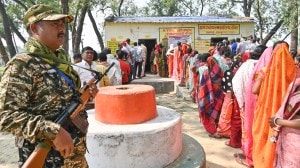Stay updated with the latest - Click here to follow us on Instagram
The Bridge Player
Theatreperson Amitesh Grovers innovative Social Gaming performance art attempts to bridge divides created by national boundaries.
Lets play a game with somebody sitting thousands of kilometers away,even half-way across the world, announces Amitesh Grover,as he takes a break from his lectures at Delhis National School of Drama (NSD),where he teaches World Drama and Contemporary Design. When he is not teaching,Grover creates games (real offline ones rather than the online variety),but for players,who are living in different time zones. Called Social Gaming,this performance art form has a deep sub-text using playful activities to bridge sociocultural divides across national boundaries.
Social Gaming,a new development of art in the digital era,comprises a set of fun,even childish,activities. At a session organised in association with the British Council a few months ago,architects and artists gathered to play with another group present at the National Theatre in London. The groups were divided into teams,with each team comprising members from both countries. Their laptops were powered with very fast internet service enabling players in London and Delhi to connect instantly over Skype,e-mail,Facebook,Flickr and SMS. Giant screens in the room displayed real-time images of the London participants and vice versa. It doesnt matter which team wins or loses, said Grover as the game kicked off.
As the first task,players in London were to draw a map of Delhi,with their Delhi team-mates telling them exactly where to place the photographs of various landmarks. The emphatic instructions and shouts of joy over a task accomplished served to break the ice. In another game,teams were asked to list things that were common among the London and Delhi members. The more uncommon the common things,the higher the marks for a team, says Grover.
Participants began by cheerfully spotting the obvious commonalities many were wearing similar shoes,for instance. Then,as the quest for higher marks built up,other features rose to the fore in one team,around four participants had personally met the head of state,the Queen or the President of India. Another factor bound team-mates in London and Delhi quite a few had,at least once in their life,contemplated suicide. By the end,as Grover had promised,it didnt matter who won. Players from two countries were united through shared secrets,and attempts to understand how the other city looked,and how the other person felt.
I try to build experiences for people. The games get them to ask questions that are subtle but change an old perspective, he says. Apart from the UK,Grover has conducted Social Gaming sessions with a group in the US and the Philippines. The Melbourne Arts Centre has invited him to create a game for groups in Australia and India this month,and a similar session between Mexico and India will be held in October.
The games have thrown up surprising conclusions youngsters from the Philippines were far more brand conscious than those from the UK,breaking the stereotype of a consumerist western world. It also appeared that Indians were better with digital technology than many of their western counterparts, says Grover. In October,he has been invited to give a lecture on game design and performance to students at Cornell University. Social Gaming breaks the traditional structure of a passive spectator watching actors. Here,a spectator is involved in what he is watching,and it becomes a life-changing experience, he says.







